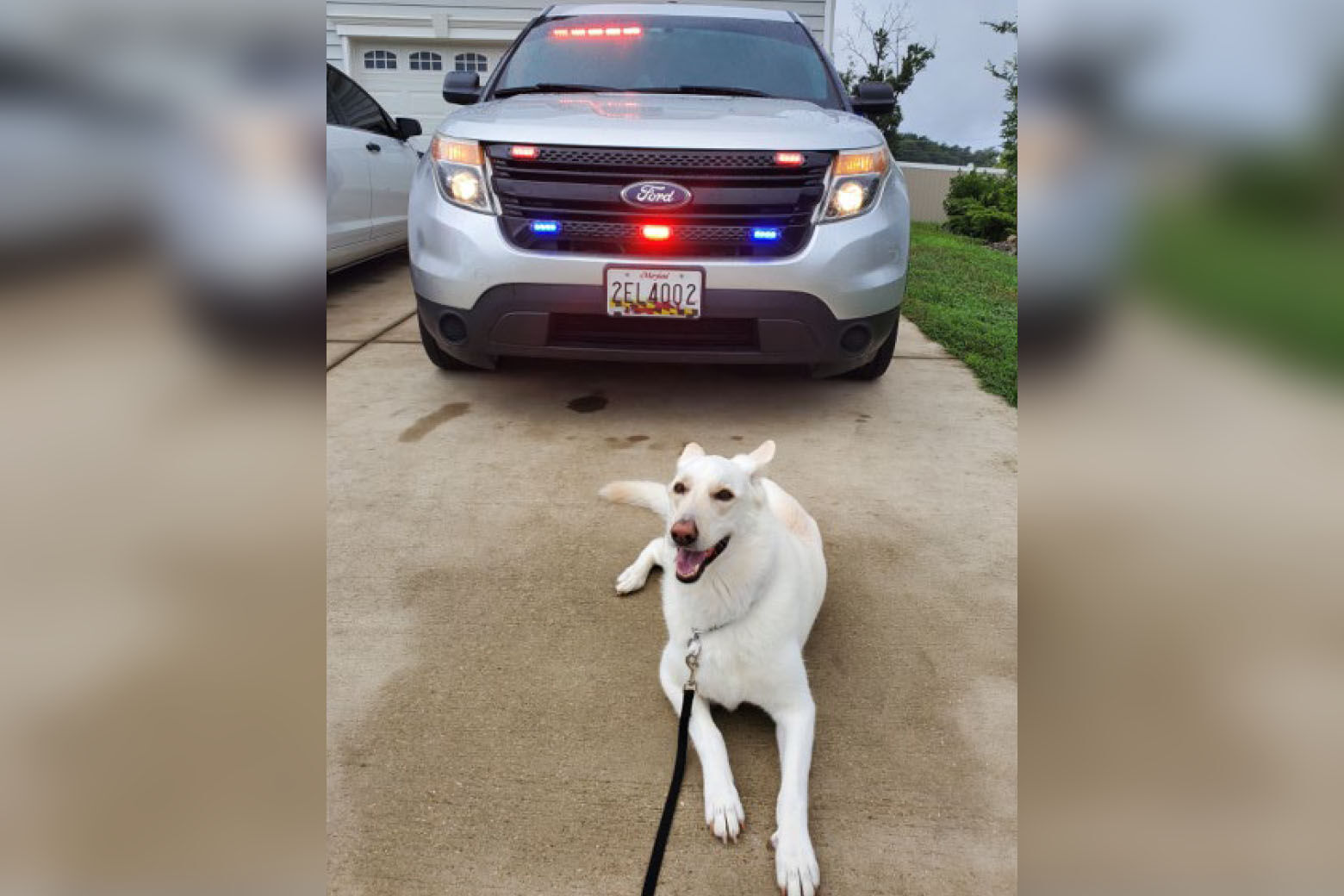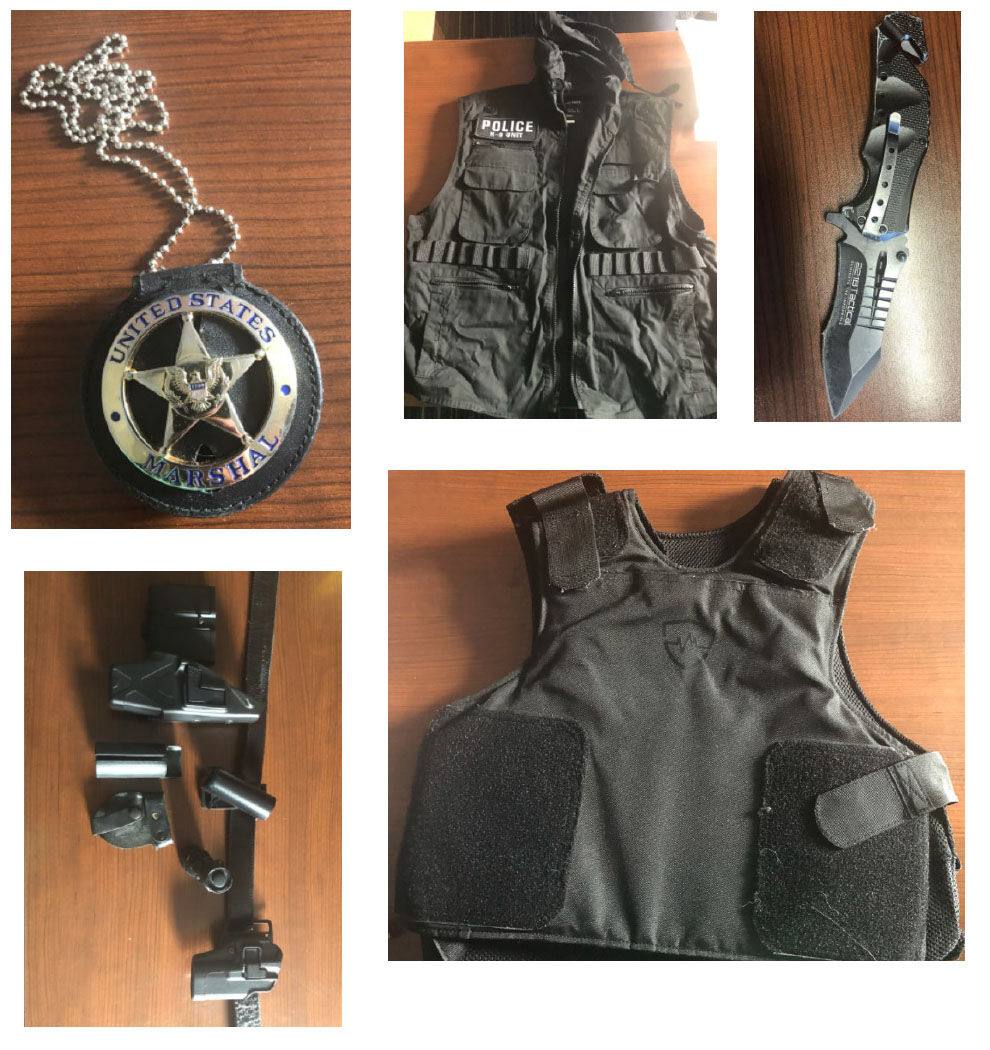A Maryland man charged with posing as a deputy U.S. Marshal had weapons; police-style vehicles with flashing lights; realistic-looking ID cards; and even a trained “bite dog,” federal prosecutors said in court documents.
Antione William Tuckson, 37, of Waldorf, Maryland, is accused of impersonating a federal officer and being a felon in possession of a firearm, according to a statement Monday from the U.S. Attorney’s Office for the District of Maryland.
Tuckson’s accused accomplice — Nijea Nicole Rich, 40, of Baltimore — is also charged with impersonating a federal officer and conspiracy to impersonate a federal officer. Prosecutors said Rich posed as Tuckson’s supervisor on the phone when police began questioning Tuckson’s status as a U.S. Marshal.
Both Tuckson and Rich were arrested Friday.
Court documents said Tuckson has been posing as a law enforcement officer across multiple states for the past 15 years.
The alleged scheme began unraveling earlier this year, according to prosecutors, after Tuckson secured employment as a security guard at a Prince George’s County restaurant by holding himself out to be a deputy U.S. Marshal.
In March, while Tuckson was on duty at the restaurant with his patrol dog, Tuckson tried to detain two women who had disputed the bill and were attempting to leave the restaurant, according to prosecutors. When the women fled, Tuckson pursued them down the road, where he encountered responding officers from the Prince George’s County Police Department.

Court documents say it was Tuckson who called police to report the incident.
Tuckson displayed a fake badge and falsely identified himself to the officers as a deputy U.S. Marshal, prosecutors said.
The Prince George’s officers, however, were suspicious, because Tuckson had apparently left his canine behind at the restaurant, and on-duty canines are trained never to leave an assigned officer’s side.
When Prince George’s officers began questioning him about his purported status as a marshal, prosecutors say Rich posed over the phone as Tuckson’s supervisor to vouch for him.
Eventually, prosecutors said, Rich showed up at the scene in tactical pants, a bulletproof vest and what appeared to be an expendable baton and told officers the dog was her emotional support animal in addition to be a patrol dog.
(The dog was later handed over to the county’s Animal Services Division, but court documents said Rich was able to retrieve the dog the next day after showing up in police-style clothing and telling the animal service officer the dog belonged to a U.S. Marshal.)
At one point, Rich also allegedly stated to the officers, “You locked up a U.S. Marshal?”
In the end, police arrested Tuckson and recovered a loaded 9 mm Glock from his hip.
The U.S. Marshals Service said it searched its personnel database and found no record that either Tuckson or Rich were ever employees.
A search warrant of Tuckson’s house in Waldorf later turned up an AR-15-style rifle and pistol-grip pump-action shotgun.

Investigators also found a printer for making identification cards, fake U.S. Marshals ID cards with embedded computer chips to resemble those used by the federal government, body armor and a sophisticated security system.
Court documents said Tuckson has, apparently, been impersonating law enforcement officers for 15 years and has not stopped even though he has racked up a criminal record and prison sentences.
Tuckson was first charged with impersonating a law enforcement officer in West Virginia in 2006, but the charges were dropped. In 2009, he was arrested in D.C. on charges relating to impersonating a police officer, but the case was ultimately overturned on appeal.
“Undeterred, Mr. Tuckson’s impersonations grew more brazen over time,” prosecutors wrote in court documents.
In 2018, according to a Charles County Sheriff’s Office report included in court filings, Tuckson responded to a robbery in progress at a bar and identified himself as a U.S. Marshal to both the victim and police.
More recently, prosecutors said, Tuckson’s impersonation attempts became more sophisticated.
In late 2020, Tuckson registered the trademark “USMS Special Services” and registered multiple vehicles in that name, according to court documents. Two of the vehicles were equipped with flashing red and blue lights, and prosecutors said investigators searching Tuckson’s house found a forged document from the Maryland Motor Vehicle Administration registering the two vehicles as emergency vehicles.
Both Tuckson and Rich made their initial appearances before Magistrate Judge Timothy Sullivan late Friday in U.S. District Court in Greenbelt.
The judge ordered Tuckson be held pending trial but released Rich under supervision.
If convicted, Tuckson and Rich each face a maximum of three years in federal prison on the impersonation charge. The conspiracy charge against Rich carries a maximum of five years.
Tuckson also faces a maximum of 10 years in prison on the charge of being a felon in possession of a firearm.








